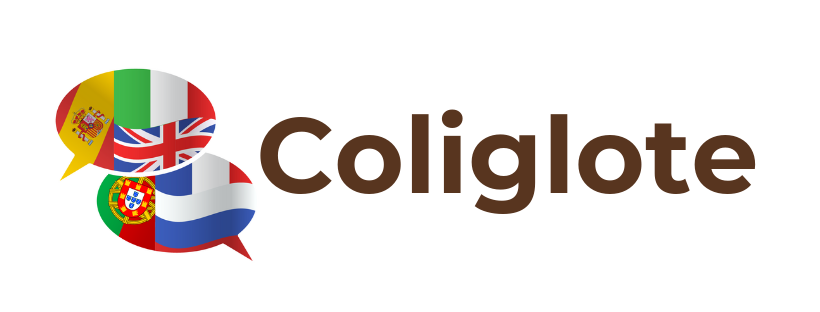Do you dream of learning a new language or perfecting your skills? There are hundreds of different kinds of learning materials in book stores or on the Internet…hard to know where to start!
Here is a list of the best materials to use, based on my personal experience:
1️⃣ Language methods
They represent an excellent basis borh for starters and those who wish to improve their skills..
▶️Personally, I recommend the ASSIMIL method, which I find very well done.
➕:
- The methods provide the essential foundations in a structured and progressive framework. You will learn the rules of grammar and conjugation as well as a lot of vocabulary
➖:
- There is no interaction, no possibility to practice the language with others. Methods alone are not enough to learn how to communicate effectively.
- You have to be very disciplined to work with such a method all by yourself. This is not obvious to everyone!
2️⃣ Reading
There are simplified books of different levels (A1 A2, B1 B2, C1 C2), specifically written for people who are learning a new language.
▶️Personally, I like the books published by CIDEB.
If you are at an intermediate level, you can also read real books in a foreign language that are not simplified: it is a very good way to progress at your own speed (I recommend e-readers and installing the dictionary of the language to be learned, it will prove useful while searching for unknown words)
▶️Free books in all languages can be found on Librivox.
➕
- It’s fun: you learn without really realizing it !
➖
– No interaction with native speakers.
– No structured or progressive grammar lessons.
3️⃣ Television
Watch movies in the language of learning! This is a great way to learn. If it is too difficult at first to understand, use subtitles (preferably in the language you are learning)
➕
– Fun: you learn without really realizing it
– Spoken language: we become familiar with the sounds of the language in a very natural way.
➖
– No interaction with a native: we remain very passive.
– No structured or progressive grammar lessons.
4️⃣ Youtube, podcasts, sites internet :
▶️There are some very nice channels on Youtube that allow you to learn with simplified stories read by someone. In English for example, look for “learning english through stories” and you will have plenty of choice! These types of channels also exist in other languages, but you have to search in the language to be learned to find them.
▶️Audiolingua is also nice to hear all the languages of your choice.
▶️For English, the BBC learning English website is excellent.
➕ and ➖ : the same as for television
5️⃣ Correspondence :
A very nice idea to improve your language skills and which, in addition, will make you meet other cultures.
The ideal is to find a correspondent who shares your interests to have something to talk about. Then if both agree, you can write to each other and correct each other’s messages. If you’re already comfortable writing, why not talk directly to each other using Skype, for example?
▶️Website idea : conversation exchange.
➕:
- Very friendly and interesting. We discover new cultures and we can make real friends, maybe even meet each other in person.
- Intense interaction: we write to each other, we talk to each other, we are really active and this is the best way to consolidate our language skills.
➖
- You need to be disciplined enough to write regularly and correct each other
- Sometimes we don’t have too many ideas for discussions… a structured method would be useful, because we tend to always go over the same subjects (name, country, family, profession… and here we are!)
6️⃣ Applications:
There are four types of applications :
❤️❤️❤️ Coliglote : you will be able to learn independently and in interaction with a real native !
➕
- Learning with locals: a real immersion in the language
- Sometimes a student, sometimes a teacher: you can be an ambassador of your own language!
- Fun and effortless: educational games for learning
- Rapid progress guaranteed: you never progress as well as by practicing
- Friends all over the world: guaranteed cultural exchange
- Completely free of charge
- A wide variety of learning materials
➖
- No grammar lessons
❤️❤️ Applications that give real courses, with a progression, like Babbel.
➕
- Structured and progressive framework. You will learn the rules of grammar as well as a lot of varied vocabulary.
- More fun than methods.
➖
- No interaction with native speakers
- Expensive!
❤️ Fun applications, such as Duolingo or Learnandplay
➕
- Playful
- Free of charge
➖
- No interaction with native speakers
- No grammar lessons
- Limited: we always do the same activities, the answers are often induced and we don’t really progress, I find.
❤️ Applications that put you in contact with a native, such as Hello Talk.
➕
- Nice to do, like writing letters or mails.
- Good interaction: we write to each other, we talk.
- Practical system to correct yourself directly on the app.
➖
- You need to be disciplined enough to write regularly and correct each other
- Sometimes we don’t have too many ideas for discussions… a structured method would be useful, because we tend to always go over the same subjects (name, country, family, profession… and here we are!)
- Problem … and not the smallest: these applications are often hacked by users who unfortunately turn them to dating sites.


Imanette LAHMIRI
20 August 2019 at 9 h 11 minSuper article: )
Imanette LAHMIRI
20 August 2019 at 9 h 11 minSuper article 🙂
Housna
29 April 2021 at 14 h 29 minBonjour Ingrid,
Super apprentissage et merci énormément !❤❤❤